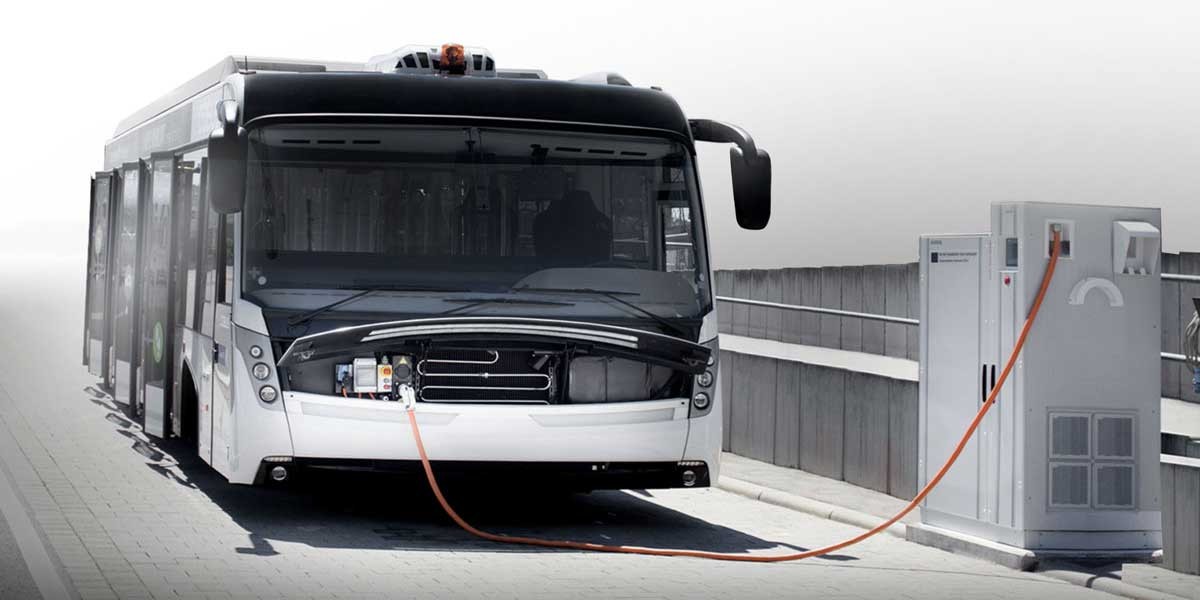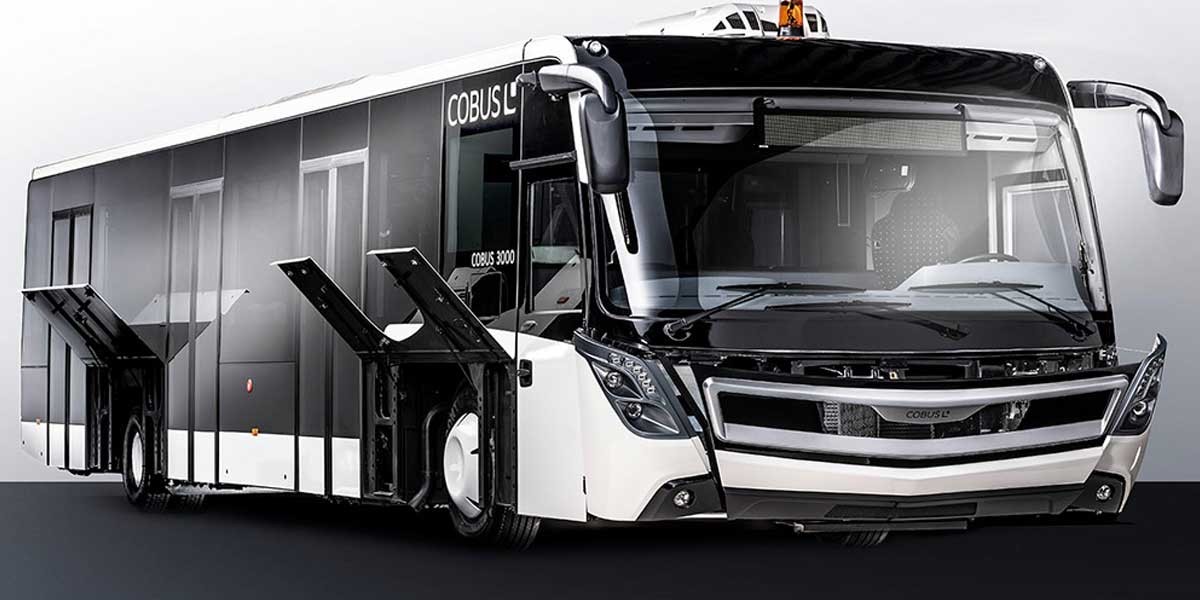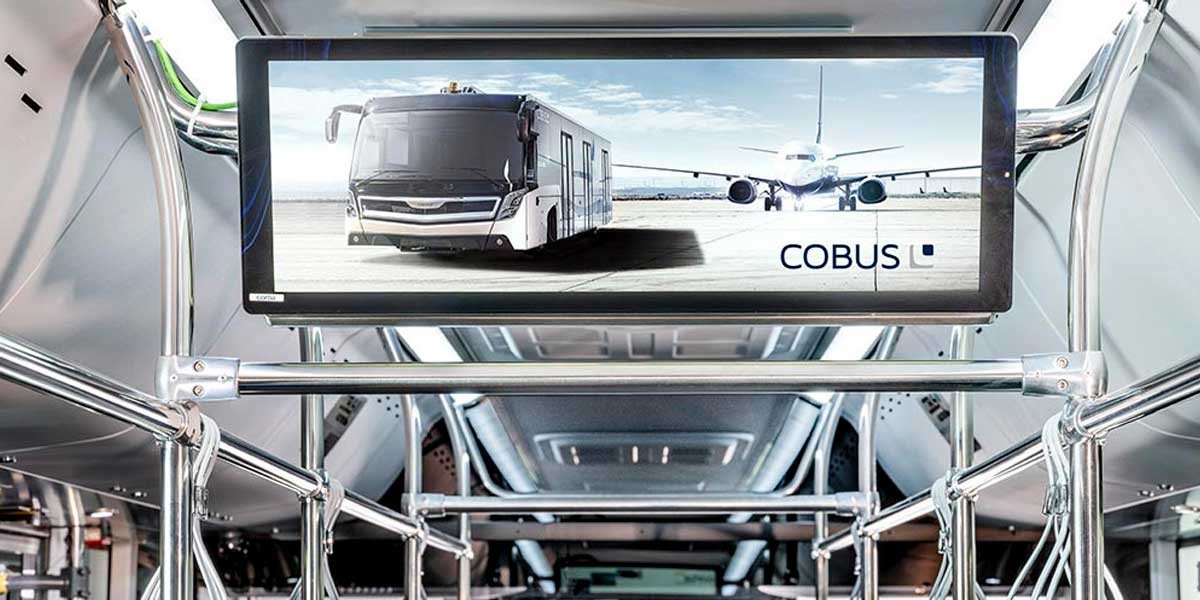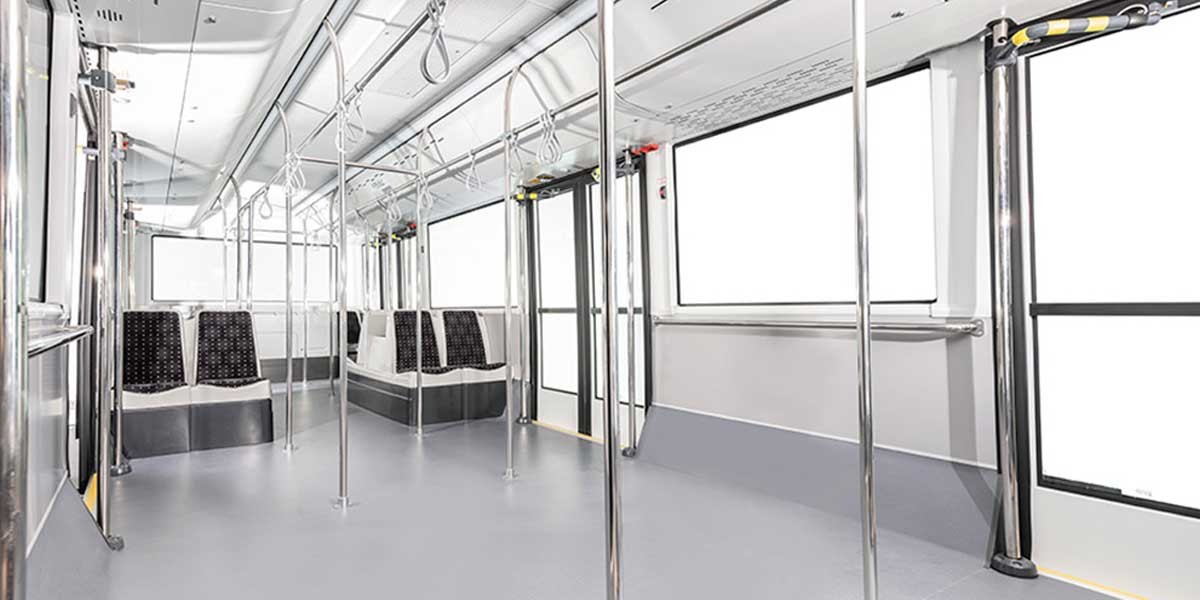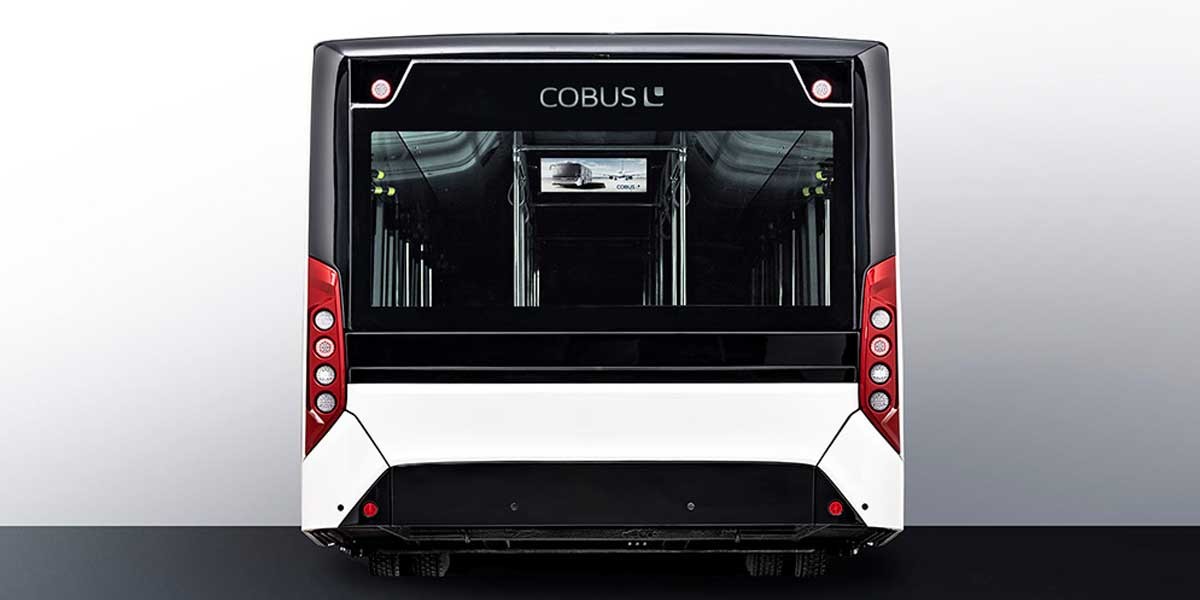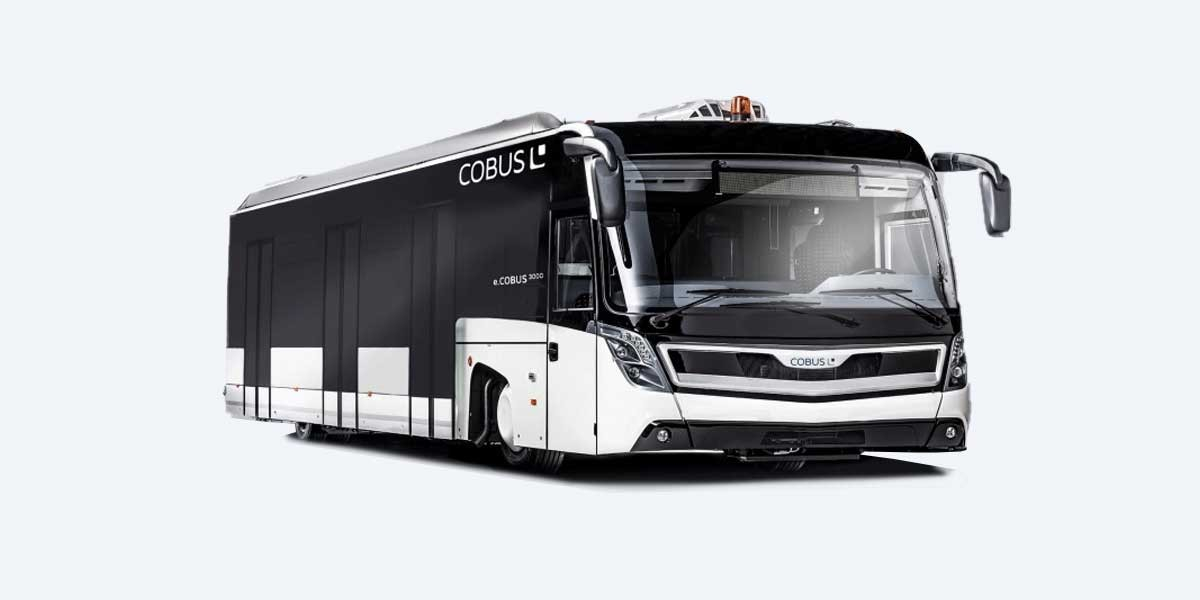e.COBUS 3000
User Rating: 4.00 / 5
![]()
![]()
![]()
![]()
![]()
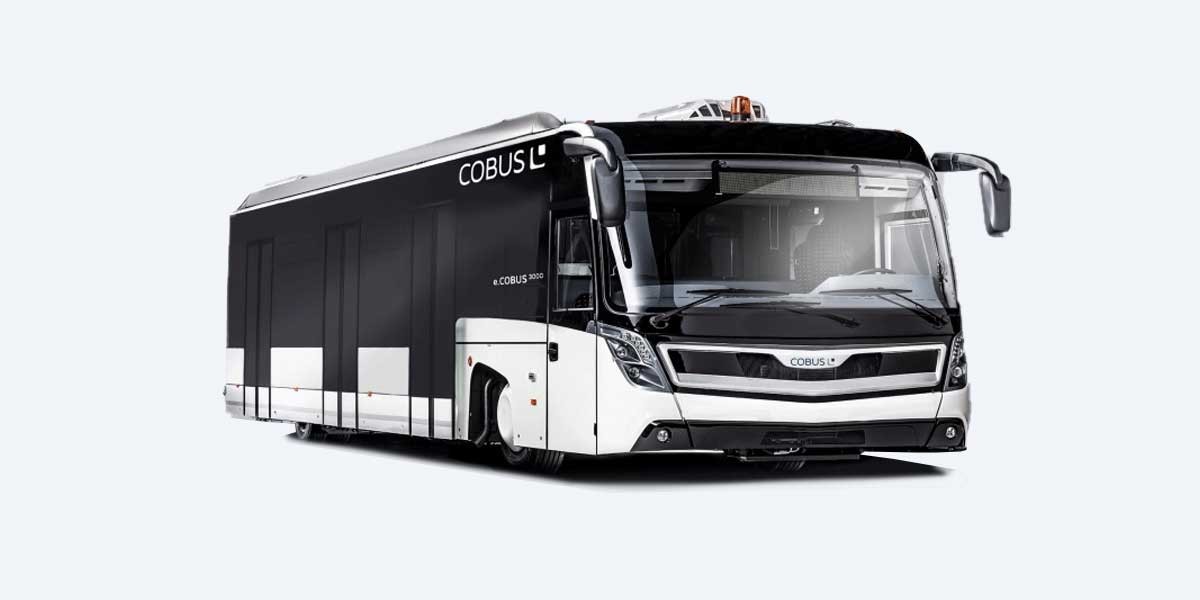

e.COBUS 3000 Review
What is e.COBUS 3000?
e.COBUS 3000 is an advanced electric-powered airport bus, designed to transport passengers between terminals and aircraft efficiently. It offers zero-emission travel, a spacious interior, and cutting-edge technology to ensure a comfortable ride and quick boarding and disembarkation.
e.COBUS 3000 price:
US$ 0 *
| manufactured in | Germany |
| sales start | 2021 |
| range (km) | 70 |
| battery (kWh) | 120 |
| bus type | airport bus |
| passengers (qty) | 110 |
* Minimum price set by the manufacturer, excluding taxes and additional options
The Revolutionary e.COBUS 3000: A New Era in Eco-Friendly Airport Transport
In today's world, where eco-friendly solutions are more than just a trend, the arrival of the e.COBUS 3000 in airport transportation is nothing short of transformational. This electric giant doesn't just move people; it steers us towards a greener tomorrow, delivering passengers from terminal to terminal in an environmentally sustainable manner.
German Engineering Masterclass
Launched from the engineering powerhouse of Germany and introduced to the market in 2021 by COBUS INDUSTRIES, the e.COBUS 3000 reflects a significant leap in sustainable airport transit. Germany's reputation for engineering excellence has birthed yet another marvel designed to shift the paradigm in airport passenger transport globally.
Exceptional Battery Power and Remarkable Range
What's truly trailblazing about the e.COBUS 3000 is its astounding reach—covering 70 kilometers (43 miles) per charge. At its heart lies a robust 120 kWh battery, engineered for longevity and dependability, allowing the e.COBUS to transport passengers effortlessly with nary a pause.
Transforming Airport Transportation
The e.COBUS 3000 is not just another airport shuttle; it's an environmental steward on wheels. Designed to carry up to 110 passengers, it exudes efficiency and sustainability, combining spaciousness with a gentle environmental footprint.
Global Presence and Dependability
From the historic allure of European cities to the dynamic urban centers in North America and Asia, the e.COBUS 3000 has cemented its place in airports worldwide. It symbolizes sustainable transport, trusted and acclaimed by bustling aviation hubs globally.
Leading in Charging Innovations
The e.COBUS 3000’s charging system is as efficient as it is innovative. Utilizing fixed fast-charging stations, it can be juiced back to full in a swift one to two hours. Furthermore, its ability to top-up during idle moments assures unparalleled operational readiness.
German Assurance of Durability
German engineering shines through with the e.COBUS 3000’s battery, promising unrivaled quality and durability. These cells come with an 8-year warranty and are built to last over 12 years, providing confidence and reliability in the long term.
Unrivaled Performance in Extreme Conditions
The crowning jewel of the e.COBUS 3000 is its adoption of Lithium Titanate Oxide (LTO) batteries, which ensure peak performance regardless of the weather—whether a freezing -30°C or a scorching +50°C. This adaptability reinforces its reliability across diverse climatic conditions faced by airports.
Nestled in the complex choreography of airport operations, where precision meets sustainability, the e.COBUS 3000 stands out not just as a mode of conveyance but as a beacon of eco-innovation. Proudly carrying its German heritage, this luxurious bus redefines expectations for the future of airport transit on the tarmac.
Exterior and Interior Images:
F.A.Q.
What is the range of an electric motorcycle?
The range of an electric motorcycle can vary widely, but it typically falls between 100 to 200 miles (160 to 320 kilometers) on a single charge, depending on the model and battery capacity.
How far can the e.COBUS 3000 travel on a single charge?
The e.COBUS 3000 can travel up to 250 kilometers (about 155 miles) on a single charge, depending on driving conditions.
What is the battery capacity and how long does it last?
The e.COBUS 3000 has a battery capacity of 120 kWh, which is designed to last for several years with regular use, typically warrantied for 8-10 years or more.
How long does it take to charge the bus fully?
Fully charging the e.COBUS 3000 takes approximately 4-6 hours with a fast charger, depending on the charging station's power output.
Are there sufficient/accessible charging stations available for the route?
With the growing infrastructure for electric vehicles, there are increasingly sufficient and accessible charging stations available in urban and many suburban areas. However, route-specific availability may still vary.
What is the upfront/initial purchase price of the e.COBUS 3000?
The e.COBUS 3000 is priced variably based on configurations and market conditions. It's best to contact the manufacturer or dealer for the specific cost.
What is the cargo space and payload capacity of the van?
The e.COBUS 3000 has ample cargo space, designed primarily for passenger transport, and can accommodate a substantial payload which is ideal for city logistics.
What are the emissions and environmental benefits of using the electric bus/van?
The e.COBUS 3000 produces zero emissions during operation, which significantly reduces the vehicle’s environmental footprint compared to traditional diesel buses.
Are there any incentives, subsidies, or government rebates available for purchasing electric buses/vans?
Yes, many countries offer incentives, subsidies, or rebates for purchasing electric vehicles, including buses and vans. These can significantly reduce the upfront cost.
How do maintenance and operating costs compare to traditional buses/vans?
Maintenance and operating costs for the e.COBUS 3000 are generally lower than traditional buses due to fewer moving parts and the absence of fuel costs.
Comparison
Speed
Let’s face it, in the world of electric buses, speed is not the crux of the matter. The e.COBUS 3000 clocks in at a respectable top speed of 65 mph (105 km/h). The BYD K9 trails behind ever so slightly at 60 mph (96 km/h), whereas the Proterra Catalyst E2 matches pace with the COBUS at 65 mph (105 km/h). On the other hand, the Mercedes-Benz eCitaro is less concerned about breaking speed records, cruising comfortably at 50 mph (80 km/h). Clearly, the e.COBUS 3000 stands shoulder-to-shoulder with its speedier rivals.
Range
Next up, the holy grail of any electric vehicle: range. The e.COBUS 3000 is armed with a 120 kWh battery offering a commendable range of 160 miles (257 km). Meanwhile, the BYD K9 offers an impressive 155 miles (250 km). The Proterra Catalyst E2 leaves its competitors eating dust with a whopping 250 miles (402 km). The Mercedes-Benz eCitaro, meanwhile, delivers a sturdy performance at 150 miles (241 km). Undoubtedly, the Catalyst E2 takes the crown, but the COBUS holds its own quite well.
Power
Torque aficionados, this ones for you. The e.COBUS 3000 belts out a robust 200 kW of power. In comparison, the BYD K9 churns out 180 kW. Pulling ahead in the power game is the Proterra Catalyst E2 with an outrageous 350 kW, and the Mercedes-Benz eCitaro ignites the tarmac with its 243 kW. No prizes for guessing who’s the heavyweight here.
Charging Time
What good is an electric bus if it’s perpetually tethered to a charging cable? The e.COBUS 3000 refuels its electric soul in roughly 3.5 hours. The BYD K9 totes a similar figure, clocking in at 4 hours. The Proterra Catalyst E2, despite its massive battery, refreshes in about 3 hours. Similarly, the Mercedes-Benz eCitaro claims a full charge in 3.5 hours. Efficient and swift, the COBUS fares splendidly here.
Price
While the e.COBUS 3000 keeps its price cards close to the chest, let’s delve into the benchmarks. The BYD K9 struts in at around $400,000 (£315,000/€367,000). The Proterra Catalyst E2 doesn’t shy away, demanding upwards of $700,000 (£552,000/€644,000). Lastly, the Mercedes-Benz eCitaro entries at approximately $500,000 (£394,000/€459,000). While the COBUS’s price remains a mystery, its likely to be positioned competitively in this golden triangle.
In this electrifying showdown among the e.COBUS 3000, BYD K9, Proterra Catalyst E2, and the Mercedes-Benz eCitaro, each brings unique strengths to the table. Speed, range, power, charging efficiency, and price—each facet reveals the evolving prowess and competition in the electric bus arena.

